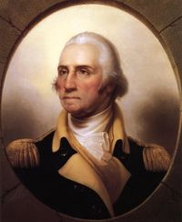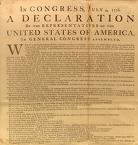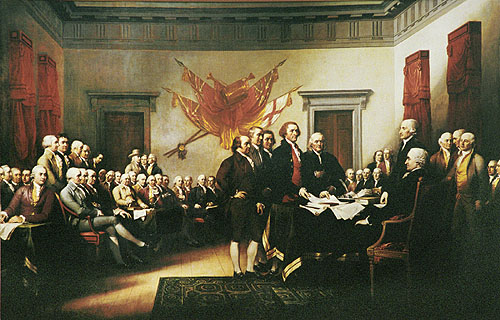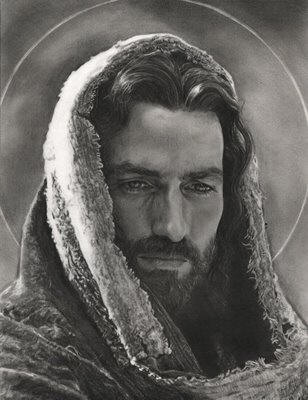|
The Whole Truth
—
George Washington, The Revolution is Not
Over
Because the Truth Hurts |
 |
"These 'wars' are a hoax
designed to enrich the US armaments industry and to infuse the 'security
forces' with police powers
over American citizenry" – Paul Craig Roberts
9/11 Was An Inside Job
* War, Debt and Taxes
* Global Zionism
The American Declaration of Independence
|
|
|
|
"Yesterday, July 4, America celebrated the adoption of our Declaration of Independence. On July 4, 1837, John Quincy Adams said these words about Independence Day:
Why is it that, next to the birthday of the Savior of the world, your most joyous and most venerated festival returns on this day [Independence Day]? . . . Is it not that, in the chain of human events, the birthday of the nation is indissolubly linked with the birthday of the Savior? That it forms a leading event in the progress of the Gospel dispensation? Is it not that the Declaration of Independence first organized the social compact on the foundation of the Redeemer’s mission upon earth? That it laid the cornerstone of human government upon the first precepts of Christianity, and gave to the world the first irrevocable pledge of the fulfillment of the prophecies, announced directly from Heaven at the birth of the Savior and predicted by the greatest of the Hebrew prophets six hundred years before?
Notice that Adams said that our Declaration of Independence exhibits four major accomplishments:
1. It formed a leading event in the progress of the Gospel dispensation.
2. It first organized the social compact on the foundation of the Redeemer’s mission upon earth.
3. It laid the cornerstone of human government upon the first precepts of Christianity.
4. It was the first irrevocable pledge of the fulfillment of the prophecies, announced directly from Heaven at the birth of the Savior.
Adams was exactly right. The United States of America is the only nation in human history established by (mostly) Christian people upon 2,000 years of Christian thought—including being formed as a direct result of the Protestant Reformation—and God’s Natural Law principles and dedicated to the purpose of religious and personal liberty and equal justice under the law.
I was recently interviewed for an upcoming film. Among other things, the producer asked me to identify the unique principles upon which America was founded. Based on my study of the Declaration, Constitution, Bill of Rights and the copious supplemental writings of the Founding Fathers, here, I believe, are those principles:
*That man is created equal under God.
*That the rights of the individual are unalienable and superior to the will of the state.
*That government exists to protect the rights and liberties of man, not to provide man with public benefits and favors.
*That a man is innocent until proven guilty, that he has the right to a trial by jury and the right to a defense attorney, etc.
*That people have a right to choose their own form of government.
*That individuals have a right and duty to bear arms for their own protection.
*That government power needs to be limited, being held in check by sovereign states and a well-regulated and fully equipped militia.
*That religious liberty is the core of America’s freedoms.
*That the People have a right and duty to alter or abolish any government that has become tyrannical.
*That America would always be a constitutional republic.
*That only sound money would be used so as to keep the federal government from amassing excessive debt.
*That America would always promote and protect a free market economy with limited governmental interference.
*That a man’s home is his castle and his personal property can never be seized except by arduous due process.
*That a free society depends upon the acceptance and application of God’s Natural Laws relative to the rights of man and the Law of Nations.
*That liberty itself depends upon the unfettered exercise of the Christian (Protestant) religion, including strong, uninhibited preaching from America’s pulpits.
Here are a few statements from America’s founders after the Declaration was approved by Congress:
John Hancock said, “There! His Majesty can now read my name without glasses. And he can double the reward on my head.”
George Washington said, “The preservation of the sacred fire of liberty, and the destiny of the Republican model of Government, are justly considered as deeply, perhaps as finally staked, on the experiment entrusted to the hands of the American people.”
Thomas Paine said, “Those who expect to reap the blessings of freedom, must, like men, undergo the fatigue of supporting it.”
Stephen Hopkins, a signer of the Declaration from Rhode Island, said as he signed the document, “My hand trembles, but my heart does not.”
Indeed, Hopkins (and the rest of the signers) had reason to tremble. Of the 56 who signed the Declaration of Independence, nine died of wounds or hardships during the war. Five were captured, imprisoned and tortured. Several lost wives, children or entire families. Two wives were brutalized and tortured. All were at one time or another the victims of manhunts and driven from their homes by British soldiers. Twelve signers had their homes completely burned. Seventeen lost everything they owned.
Carter Braxton, a wealthy planter and merchant, saw his ships swept from the seas by the British Navy. He sold his home and properties to pay his debts and died in rags. Thomas McKean was so hounded by the British that he was forced to move his family constantly. He served in Congress without pay, and his family was kept in hiding. His possessions were seized by the British, and he died in poverty. British soldiers looted the properties of Ellery, Hall, Clymer, Walton, Gwinnet, Heyward, Rutledge and Middleton.
At the Battle of Yorktown, Thomas Nelson, Jr., noted that the British General Cornwallis was using his home for his headquarters. He quietly urged General George Washington to open fire on his home, saying it was no longer his home but was now the headquarters of the enemy. The home was subsequently destroyed. Nelson died bankrupt.
Frances Lewis had his home and properties destroyed by the British. They jailed his wife, and she died within a few months. John Hart was driven from his wife’s bedside as she was dying. Their 13 children fled for their lives. His fields and his gristmill were laid to waste. For more than a year, he lived in forests and caves, returning home to find his wife dead and all of his 13 children vanished. He never saw them again.
The two patriots most responsible for the Declaration of Independence, John Adams and Thomas Jefferson, both died on the same day: July 4, 1826—the 50th anniversary of the adoption of the Declaration. Daniel Webster gave the eulogy for both men on August 2 of that year. He concluded his remarks with these words: “It [the Declaration of Independence] is my living sentiment, and by the blessing of God, it shall be my dying sentiment. Independence now, and independence forever.”
Amen! That should be the living and dying
sentiment of every American."
Article by Chuck Baldwin
July 5, 2018
See Also: https://citizensamericaparty.org/Ten_Commandments.htm


